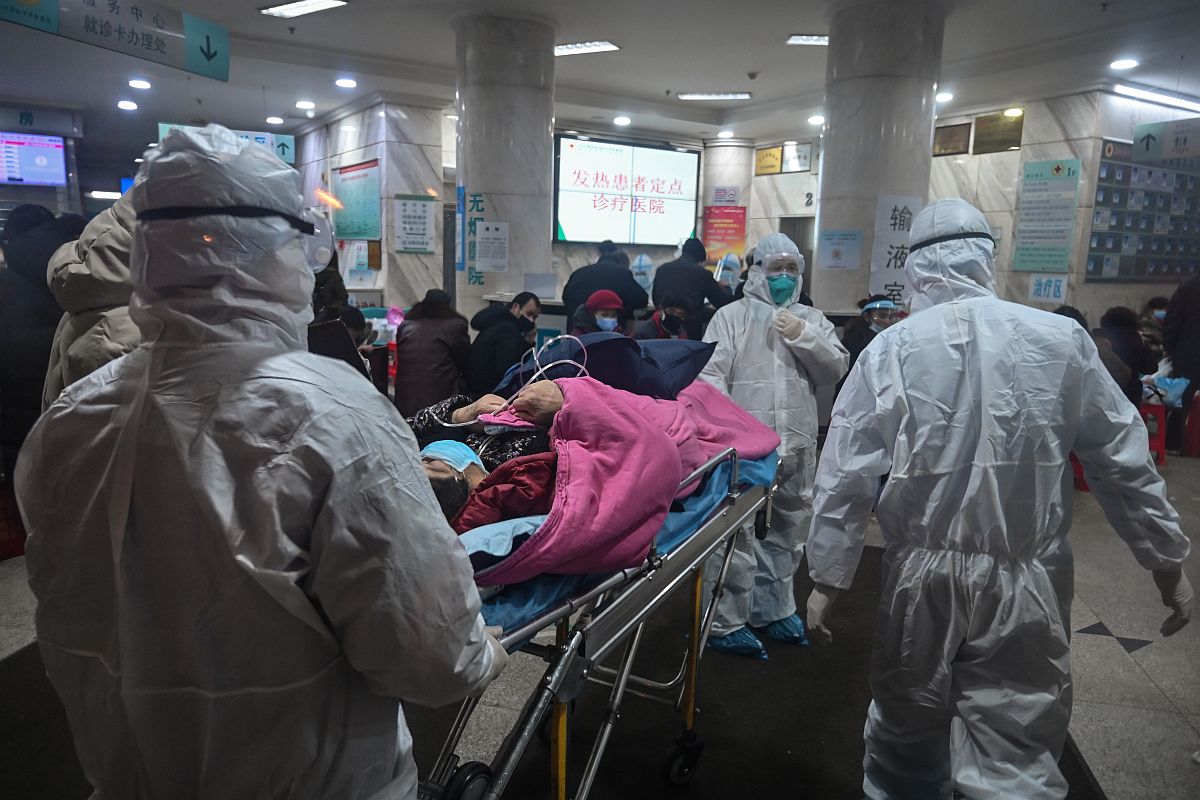The nationwide death toll in China’s Coronavirus outbreak has risen to 213, with nearly 2,000 new cases confirmed, the National Health Commission said on Friday.
In its daily update, the commission said 43 new deaths had occurred as a result of the virus, all but one of them in hardest-hit Hubei province where the virus first emerged.
Advertisement
The latest numbers indicate that the daily death count and the overall spread of the virus within China were continuing to grow steadily, despite unprecedented quarantine measures imposed on Hubei a week ago and other preventative steps nationwide.
The National Health Commission said there were 1,982 new confirmed cases, bringing the total to just under 10,000.
Another 102,000 people are under medical observation with possible symptoms of the respiratory ailment.
On Thursday, Chinese health authorities had reported 38 new deaths, which had marked the biggest single-day jump yet.
Meanwhile, the World Health Organization (WHO) has declared the novel Coronavirus outbreak as a global health emergency since the virus was spreading globally at an alarming rate.
As 98 confirmed cases were also reported from 18 countries, Tedros Adhanom Ghebreyesus, the Director-General of the WHO, told the media on Thursday night: “I am declaring a public health emergency of international concern over the global outbreak of 2019nCoV, not because of what is happening in China, but because of what is happening in other countries.
“In many ways, China is actually setting a new standard for outbreak response. Our greatest concern is the potential for the virus to spread to countries with weaker health systems, and which are ill-prepared to deal with it.
“We must remember that these are people, not numbers. More important than the declaration of a public health emergency are the committee’s recommendations for preventing the spread of the 2019nCoV virus and ensuring a measured and evidence-based response.”
Ghebreyesus’s declaration came after a group of 15 experts announced the global alert almost a week after its first declaration when the WHO assured that the outbreak had not reached the status of a global epidemic.
This is the sixth time the WHO has declared a public health emergency of international concern after it did so during the outbreaks of H1N1 in 2009; the Ebola virus in West Africa in 2014 and in the Democratic Republic of the Congo in 2019; polio in 2014; and the Zika virus in 2016.
The WHO, however, maintained that there is no reason to restrict international travel over the China virus.
Many countries have already urged their citizens not to visit China while some have banned entry for travellers from the central Chinese city of Wuhan.
WHO chief Ghebreyesus had earlier said on Twitter that the organisation “deeply regrets” what he called a “human error” in WHO reports last week that referred to the global risk of the outbreak as “moderate” instead of “high”.
The Coronavirus has caused alarm because of its similarity to SARS (Severe Acute Respiratory Syndrome), which killed nearly 650 people across mainland China and Hong Kong in 2002-2003.
Like SARS, it can be passed among people through the respiratory tract.
The symptoms of infection include fever, cough and breathing problems.
Outside of China, Hong Kong and Macau, other countries with confirmed cases include Thailand, Singapore, Malaysia, Vietnam, Cambodia, South Korea, Japan, Nepal, Sri Lanka, Canada, the United States, United Arab Emirates, Australia (two new cases reported Thursday), France and Germany. Finland reported its first case Wednesday while India confirmed a positive case on Thursday.
(With inputs from AFP)











